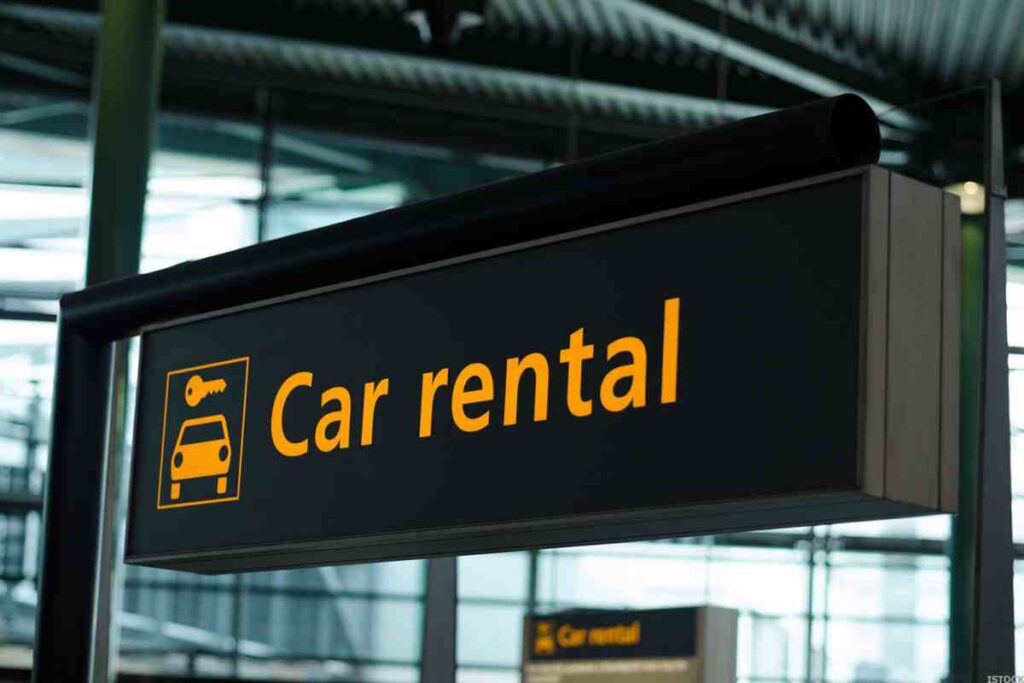When it comes to car insurance, everyone wants the best coverage at the lowest price. But with so many options out there, how do you know if you’re getting a good deal? One option that often comes up is using a car insurance broker—someone who can shop around on your behalf and find the right policy for your needs. But is it really cheaper to go through a broker, or could you save more by going directly to the insurance companies themselves? In this article, we’ll explore what car insurance brokers do, the good and bad sides of using them, and help you decide if a broker can save you money.
What is a Car Insurance Broker?

A car insurance broker is a professional who acts as an intermediary between you and insurance companies. Their primary role is to help you find the best car insurance policy that suits your needs and budget. Brokers have access to a wide range of insurance products from various insurers, which allows them to compare different policies and present you with the best options. They provide personalized advice, assist with the application process, and help you understand the terms and conditions of the policies they recommend. Essentially, brokers simplify the process of buying car insurance by doing the legwork for you.
The key difference between brokers and direct insurance providers lies in the level of service and the range of options available. Brokers offer a more personalized experience and access to a broader selection of policies, while direct providers offer a more straightforward, potentially cost-effective option for those willing to manage the process themselves.
Advantages of Using a Car Insurance Broker
Here are some advantages of using a car insurance broker:

- Access to Multiple Insurers: Brokers work with a variety of insurance companies, giving you access to a wide range of options. This increases your chances of finding a policy that suits your needs and budget.
- Personalized Service: A broker takes the time to understand your specific insurance needs, lifestyle, and budget. They can recommend policies that offer the best coverage for your unique situation, rather than a one-size-fits-all approach.
- Expert Advice: With in-depth knowledge of the insurance market, brokers can explain complex insurance terms and conditions in plain language. They help you understand what you’re buying, ensuring you’re not caught off guard by exclusions or coverage gaps.
- Tailored Solutions: If you have special circumstances—like a high-value vehicle, a history of claims, or a need for customized coverage—brokers can find policies that address these specific needs.
- Negotiation on Your Behalf: Brokers can negotiate with insurers to get you better rates or improved terms. They have relationships with insurance companies and can leverage these to your advantage.
- Ongoing Support: Brokers often provide ongoing support throughout the life of your policy. Whether you need to make changes to your coverage, file a claim, or have questions about your policy, your broker is there to assist.
- Finding Discounts: Brokers are familiar with the various discounts that insurers offer and can ensure you’re getting all the discounts you qualify for. This can lead to significant savings.
- Time-Saving: Instead of spending hours researching and comparing policies, a broker does the legwork for you. They streamline the process by gathering quotes and presenting you with the best options.
- Advocacy During Claims: In the event of a claim, brokers can act as your advocate, guiding you through the process and ensuring that your claim is handled fairly and efficiently.
- Better Understanding of Policy Details: A broker can help you navigate the fine print, ensuring you fully understand the terms of your policy, including coverage limits, deductibles, and exclusions.
These advantages highlight why many people choose to work with a car insurance broker, especially when seeking a policy that perfectly fits their needs.
Disadvantages of Using An Insurance Broker
While using a car insurance broker has its advantages, there are also some potential disadvantages to consider:

- Additional Fees: Brokers may charge fees or commissions for their services. These costs can add up and may make the overall price of your insurance policy higher than if you went directly through an insurance provider.
- Limited to Broker’s Network: Brokers typically work with a select group of insurance companies. This means you might not have access to all available policies on the market, potentially missing out on better deals from companies outside the broker’s network.
- Potential Bias: Some brokers may have preferred relationships with certain insurance companies, which could influence their recommendations. This might lead to a less objective comparison of policies.
- Complexity: While brokers aim to simplify the process, the involvement of a middleman can sometimes add an extra layer of complexity. You might find it easier to deal directly with an insurance company, especially if you prefer a more straightforward approach.
- Confidentiality Concerns: Sharing personal and financial information with a broker means trusting them to handle your data securely. There is always a risk, however small, of data breaches or misuse of information.
- Dependence on Broker’s Expertise: The quality of service you receive depends on the broker’s knowledge and experience. If the broker is not well-informed or lacks expertise, you might not get the best advice or coverage options.
- Lack of Direct Communication: When you use a broker, you may not have direct communication with the insurance company. This can sometimes lead to misunderstandings or delays in getting information or resolving issues.
- Conflicts of Interest: Some brokers might prioritize their own financial gain over your best interests. They might recommend policies that offer them higher commissions rather than the best coverage for you.
Does A Rebuilt Title Affect Insurance?
Hidden Costs and Fees of Brokers
When considering whether to use a car insurance broker, it’s important to be aware of potential hidden costs and fees that might not be immediately obvious. Here are some common hidden costs and fees to watch out for:
- Broker Fees: Brokers often charge a fee for their services, which can be a flat fee or a percentage of your premium. This fee might not be included in the initial quote, so asking about it upfront is essential.
- Commission-Based Fees: Some brokers earn a commission from the insurance companies they work with. While this doesn’t directly cost you extra, it can influence the broker’s recommendations, potentially leading to higher premiums.
- Administrative Fees: Brokers may charge additional fees for administrative tasks such as processing paperwork, making policy changes, or handling claims. These fees can add up over time.
- Policy Fees: Some insurance policies come with extra fees that are not included in the base premium. These can include charges for things like installment payments, late payments, or policy cancellations.
- Service Charges: Brokers might charge for additional services such as providing advice, conducting risk assessments, or offering ongoing support. These charges can vary widely depending on the broker and the level of service provided.
- Renewal Fees: When it’s time to renew your policy, brokers might charge a renewal fee. This fee can be a surprise if you’re not aware of it in advance.
- Hidden Premium Increases: Sometimes, the initial premium quoted by a broker might be lower than what you end up paying. This can happen if the broker doesn’t fully disclose all the factors that could affect your premium, such as your driving history or credit score.
Is Harley Davidson Motorcycle Insurance Good?
To avoid these hidden costs and fees, it’s crucial to ask your broker for a detailed breakdown of all charges before committing to a policy. Make sure you understand what each fee covers and whether it’s a one-time charge or an ongoing cost.
Tips for Choosing a Good Broker

Choosing a good car insurance broker can make a significant difference in finding the right policy for your needs. Here are some tips to help you select a reputable and reliable broker:
- Check Credentials: Ensure the broker is licensed and registered with the relevant regulatory authorities. This guarantees they meet the necessary professional standards and legal requirements.
- Experience and Expertise: Look for brokers with a proven track record and experience in the car insurance industry. Experienced brokers are more likely to provide valuable insights and find the best policies for you.
- Read Reviews and Testimonials: Check online reviews and testimonials from other customers. Positive feedback and high ratings can indicate a broker’s reliability and quality of service.
- Ask for Recommendations: Seek recommendations from friends, family, or colleagues who have used brokers before. Personal referrals can provide trustworthy insights into a broker’s performance.
- Transparency: Choose a broker who is transparent about their fees, commissions, and the insurance companies they work with. Clear communication about costs and services is essential.
- Range of Options: Ensure the broker has access to a wide range of insurance providers and policies. A good broker should offer multiple options to find the best fit for your needs.
- Customer Service: Evaluate the broker’s customer service. They should be responsive, attentive, and willing to answer your questions. Good customer service is crucial for a smooth and stress-free experience.
- Specialization: Some brokers specialize in specific types of insurance or cater to particular customer groups. If you have unique needs, look for a broker with expertise in that area.
- Ask Questions: Don’t hesitate to ask the broker about their process, the insurance companies they work with, and how they determine the best policies. A good broker will be happy to provide detailed answers.
- Trust Your Instincts: Finally, trust your instincts. If something feels off or you don’t feel comfortable with a broker, it’s okay to look for someone else. Your peace of mind is important.
By following these tips, you can find a reliable car insurance broker who will help you secure the best coverage for your needs.
What Questions Should I Ask A Broker Before Hiring Them?
Important questions to ask include:
- What is your experience in the car insurance industry?
- Which insurance companies do you work with?
- How are you compensated (fees, commissions)?
- Can you provide references from previous clients?
- How will you help me find the best policy for my needs?
FAQs
Q 1. What qualifications should a car insurance broker have?
Ans. A car insurance broker should have the necessary licenses and certifications required by the regulatory authorities in their region. They should also have a solid understanding of the insurance market, policies, and regulations. Experience in the industry and a good track record of helping clients find suitable insurance policies are also important qualifications.
Q 2. Can a broker help with claims?
Ans. Yes, brokers can assist with the claims process. They can help you understand the steps involved, gather necessary documentation, and communicate with the insurance company on your behalf. This can make the claims process smoother and less stressful for you.
Q 3. Are there any risks in using a car insurance broker?
Ans. There are some potential risks, such as conflicts of interest if the broker prioritizes insurers that offer higher commissions. Additionally, sharing personal and financial information with a broker requires trust in their ability to handle your data securely. To mitigate these risks, choose a reputable broker and ask about their relationships with insurers and data protection practices.
Q 4. How do I know if a broker is reputable?
Ans. To verify a broker’s reputation, check online reviews and testimonials from other customers. You can also ask for recommendations from friends, family, or colleagues. Additionally, ensure the broker is licensed and registered with the relevant regulatory authorities.
Q 5. Can I switch brokers if I’m not satisfied?
Ans. Yes, you can switch brokers if you’re not satisfied with their service. However, it’s important to review your current policy and any agreements you have with your broker to understand any potential implications. You may need to notify your insurance company and the new broker about the change.
Q 6. Do brokers offer other types of insurance?
Ans. Many brokers offer a range of insurance products, including home, health, life, and business insurance. Working with a broker who offers multiple types of insurance can be beneficial, as they can help you find comprehensive coverage for all your needs.
Q 7. What should I do if I have a complaint about my broker?
Ans. If you have a complaint about your broker, start by addressing the issue directly with them. If the problem is not resolved, you can contact the regulatory authority or professional association that oversees brokers in your region. They can provide guidance on how to file a formal complaint and seek resolution.
Q 8. What are some best car insurance companies in the USA?
Ans. Some top car insurance companies are; USAA, Nationwide, State Farm, Geico, Progressive, and Erie Insurance.
Conclusion – Is It Cheaper to Get Car Insurance Through A Broker?
Whether it’s cheaper to get car insurance through a broker depends on various factors. Car insurance brokers are licensed experts who can help you find the best combination of coverage and rates by comparing multiple quotes from different insurance companies. They can save you time and effort by researching for you and may introduce you to smaller, regional companies that offer competitive rates.
However, brokers typically charge a fee for their services, making the overall cost higher than if you shop for insurance directly. Some brokers are paid a commission by the insurance companies, which might also affect the final price of your policy. Additionally, buying insurance directly from an insurance company, especially online, can sometimes offer discounts that you might miss out on when using a broker.
In summary, while brokers can provide valuable assistance and potentially find you better deals, the cost of their services might offset the savings. It’s essential to weigh the convenience and expertise they offer against the potential additional costs to determine if using a broker is the right choice for you.

Shubham is a passionate insurance expert with years of experience in the industry. I write about home, auto, travel, life, and health insurance to help readers make informed decisions. My goal is to break down the details of coverage, costs, and claims in a straightforward, easy-to-understand way, so you can protect what matters most without the confusion.


